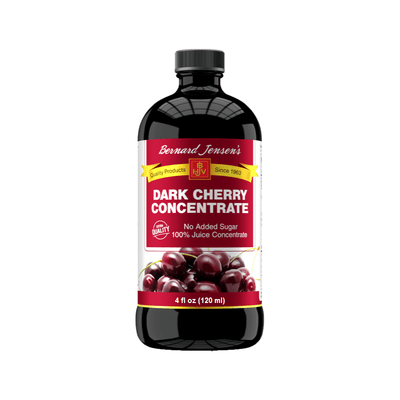Why do women need more iodine than men?

Iodine is essential for making hormones that control growth and energy levels. The body also needs it during pregnancy to develop the baby’s healthy brain and bones. Not getting enough iodine can cause serious problems such as stunted childbirth or an enlarged thyroid gland (goiter) in adults, leading to a slow metabolism. However, some types of iodine rich foods are readily available. So you'll always know what kind would best suit your diet plan.
Women planning to get pregnant, those who are already pregnant or are breastfeeding, need extra iodine. At such times, they should see a doctor for advice about the benefits of iodine and the best way to take recommended doses of iodine for women daily during this exciting but challenging time.
What To Know About Iodine?

So, what does iodine do for the body?
The many uses of iodine are through the thyroid gland. It is a small butterfly-shaped gland in your neck that uses iodine to make hormones important for energy and warmth. These same compounds are also necessary during pregnancy as they help develop the baby's bones in utero and after birth. This means you need enough of the mineral itself to overcome a low iodine diet. However, when pregnant women get inadequate amounts than what their bodies require due to either dietary limitations or excess consumption via supplements, there could be harmful effects on both mother and child.
You might be surprised to learn that the daily recommendation for adults is only 150 micrograms (mcg). The amount an infant needs goes up by 110 before decreasing once they hit 7-12 months and then declines even more drastically to 90+. Kids 9 through 13 should get at least 120 mcgs per day, but most American adolescents have no trouble getting these amounts from food alone. Still, you need higher doses in certain circumstances when the body exhibits low iodine symptoms during pregnancy or nursing.
-
For Breast Health
Iodine is an essential mineral for humans, and the benefits of iodine in the body have been extensively studied. It is a nutrient that helps promote healthy breast tissue development and prevents the formation of abnormal cells. One of iodine's most exciting properties is its ability to protect against breast cancer cells while also reducing fibrocystic breast disease risk and premenstrual mood swings.
When it comes to breast cancer, iodine deficiency is not just associated with an increased risk of fibrocystic breasts; this condition affects up to 50% of women of reproductive age. Fortunately for these unfortunate ladies at higher than normal risks because they lack enough iodine in their diet or glands, supplementation can help provide the recommended dose of Iodine for women daily. It has been shown to help alleviate symptoms. This includes lumps felt around the nipple and tenderness when pressing on them gently (due to pressure changes that occur from lying down quickly after waking).
-
For Reproductive Health
Women's reproductive health is deeply linked to iodine. Iodine deficiency can lead to breast cancer risk and affect the genes involved with estrogen metabolism and up-regulating those required for estrus cycle or progesterone production while downplaying responsive ones. In addition, it may be another way intake affects female hormone-related diseases such as polycystic ovary syndrome (PCOS).
Those who experience unpleasant symptoms in the second half of their menstrual cycle may find relief from iodine rich foods. Iodine is clinically proven to be helpful for some symptoms, such as premenstrual breast tenderness and PMS. Moreover, it can also lower progesterone levels, leading many users to feel depressed or moody during this time due to an imbalance between estrogen and testosterone (which are two hormones responsible for producing feminizing effects).
-
For Thyroid Function

Women's health is a field that relies heavily on the thyroid for its function.
The thyroid contains 70-80% of the body's iodine stores and produces hormones responsible for regulating metabolism in both men AND women, and dedicates more than half (57%) of the daily recommended intake to making vital chemicals.
The thyroid is a small organ in your neck that produces hormones. When there isn't enough iodine, it can cause swelling and difficulty swallowing or speaking because of the pressure from all that extra fluid volume pressing against muscles around this delicate tissue. The two main chemicals created by our bodies through deiodination are thyroxine (T4) and triiodothyronine (T3).
When women consume a low iodine diet, thyroid hormone production will eventually start declining, resulting in symptoms like fatigue and weight gain. According to Australian government data, hypothyroidism affects six to ten percent of the female population across Australia, increasing among older women. It's also five times more common than males suffering from this condition.
Low iodine intake can lead to fatigue and weight gain, hair loss,and abnormal menstrual cycle. Iodine supplements (white iodine for hair growth) may help you regain some piece of mind once a deficiency has been diagnosed correctly.
You should get your thyroid hormone levels checked if you're feeling symptoms of an underactive gland, like fatigue and weight gain. It's also important to know that other types of autoimmune conditions may be related, such as type 1 diabetes or celiac disease.
-
During Pregnancy
It is always necessary to obtain appropriate amounts of iodine in pregnant women. Pregnant women should need about 50% more than other adults. However, if you don't eat dairy foods during pregnancy or low levels, you and your baby might suffer from adverse effects. So, speak with your doctor, who may recommend the best iodine supplements or nutrient-rich food sources containing 150 mcg per serving to support healthy brain development for your baby.
-
During Breastfeeding
The iodine found in breast milk and baby formula help, but it may be difficult for baby to get enough if you're not breastfeeding. Experts recommend nursing mothers get around 290 mcg each day from food sources or supplements like multivitamins until 12 months after giving birth, when the baby starts eating solids with minimal amounts of table salt added into their meals.
-
Iodine Tests

The Lugol’s iodine test can show whether or not you have had enough of this essential nutrient in your diet for the body to get the benefits of iodine. In addition, your doctor can analyze a urine test for any signs that you might be lacking iodine. However, these tests don't always work because everyone is different. If you want to know more about it, follow a proper guide and learn about the many uses of Lugol’s Iodine.
-
Iodine Deficiency

The importance of iodine for women's health is undeniable. It has been shown to significantly impact many aspects, including the health of the thyroid, breasts, and ovaries. Unfortunately, some soils generally yield low levels, which means that the produce we eat isn't always reliable for dietary intake, even if you fortify them with added iodine. Furthermore, pregnant and breastfeeding mothers alongside developing babies and newborns are at increased risk if iodine requirements are not met.
When the thyroid gland becomes inflamed, it can cause swelling in various parts of your body. This condition is called a goiter, and there are many causes for this type of nodule growth on the neck - don't assume that low iodine diet levels are responsible. Instead, talk with a doctor if you're unsure about what's going on. If the problem doesn’t get worse, the doctor may recommend Lugol’s iodine use as treatment. If you want further information for its correct use and benefit, learn more here.
The thyroid gland is responsible for producing hormones that regulate your body's metabolism. If you don't have enough Iodine, it might not be able to do its job correctly and result in hypothyroidism or even goiter. The symptoms of this condition can inflame the ducts leading up into the mouth, where excess hair begins growing on them. In addition, you could also experience dry skin and mouth combo, constipation, abnormal temperatures, or mental effects.
So, talk with your doctor if you notice any symptoms, and if it leads to iodine deficiency, speak about appropriate treatment at once (like iodine radiation).
How To Get More Iodine?

You may have heard of the health benefits that seaweed can provide, but did you know there are also some great sources for the benefits of iodine? Iodine is in eggs and dairy products like milk. It's also present in seafood such as shrimp or tuna. However, iodine levels will vary depending on the type eaten (for example, someone eating only cod would need more). If your diet includes processed foods with no added salt, don't worry about this nutrient being lacking.
There are tons of supplements on the market that claim to boost your health. For example, many of the best iodine supplements, multivitamins, and seaweed teas have iodine in them. However, adults shouldn't need more than 1100 mcg per day unless they talk with their doctor first about how much could potentially be safe for them. Also, scientists aren't sure whether to give these minerals as early birth supplements since it depends upon many factors such as pregnancy timing, weight gain after delivery, or a daily dose of iodine for women, etc.
What Else Should You Know?

Topical iodine is a great way to prevent and treat infections, but first, you must read how to use Lugol’s iodine topically. It works by killing bacteria in cuts, scrapes, bite wounds (and other superficial injuries), on unbroken skin areas such as mild fungus or psoriasis patches that may have developed from that place.
The only downside? You can't use this treatment method more than 10 days at a time because too much exposure could prove harmful, but don't worry; the FDA regulates all products containing more than 2% solution concentrations, so they'll be safe anyway. Still, it is better to learn how to safely supplement with iodine to prevent any side effects.
Still, you must also know that too much iodine can inflame your thyroid gland, cause symptoms of iodine detox, and cause some of the same symptoms that low levels do, including a goiter. A huge dose, like several grams at once, might put you in a coma. Moreover, it can also cause stomach or mouth burns, vomiting, and diarrhea, among other things. As it happens, normal levels may also produce problems if one is used to a low iodine diet or has already developed a problem with their thyroid.
Moving on, supplements containing iodine can raise potassium in the blood to unsafe levels. And they might also lower thyroid hormone levels too much if taken simultaneously with meds for hyperthyroidism or other medications like amiloride (for the heart) eplerenone (for blood pressure), and spironolactone (aldosterone antagonist). If not taken care of, it can be one of the major causes of low iodine. So tell your doctor about all the prescription medications before adding anything new.
Read More: Lugol's Research on Iodine
Final Takeaway

Iodine is an essential nutrient that people with access to iodized salt, seafood, and certain vegetables can get in their diet. However, in a few conditions, you may need the best iodine supplements for the thyroid gland or goiter caused by insufficient iodine. So talk with your doctor about what kind would be best suited to your needs.




Leave a comment